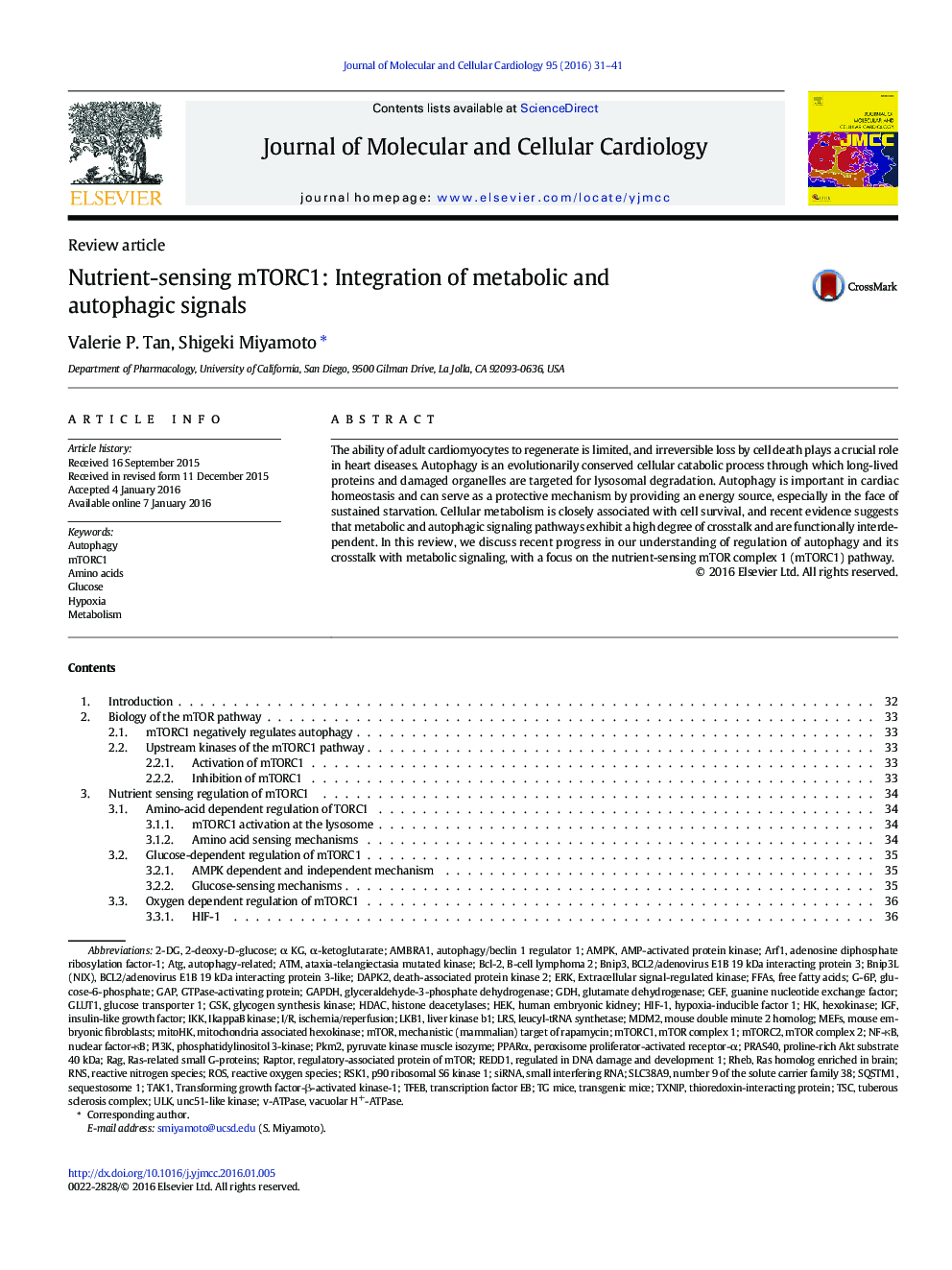| Article ID | Journal | Published Year | Pages | File Type |
|---|---|---|---|---|
| 2190471 | Journal of Molecular and Cellular Cardiology | 2016 | 11 Pages |
•Autophagy is important for maintaining cardiac homeostasis.•mTORC1 plays a major role in regulating cellular growth and metabolism and inhibits autophagy•mTORC1 serves as a convergent point in nutrient-sensing pathways.
The ability of adult cardiomyocytes to regenerate is limited, and irreversible loss by cell death plays a crucial role in heart diseases. Autophagy is an evolutionarily conserved cellular catabolic process through which long-lived proteins and damaged organelles are targeted for lysosomal degradation. Autophagy is important in cardiac homeostasis and can serve as a protective mechanism by providing an energy source, especially in the face of sustained starvation. Cellular metabolism is closely associated with cell survival, and recent evidence suggests that metabolic and autophagic signaling pathways exhibit a high degree of crosstalk and are functionally interdependent. In this review, we discuss recent progress in our understanding of regulation of autophagy and its crosstalk with metabolic signaling, with a focus on the nutrient-sensing mTOR complex 1 (mTORC1) pathway.
